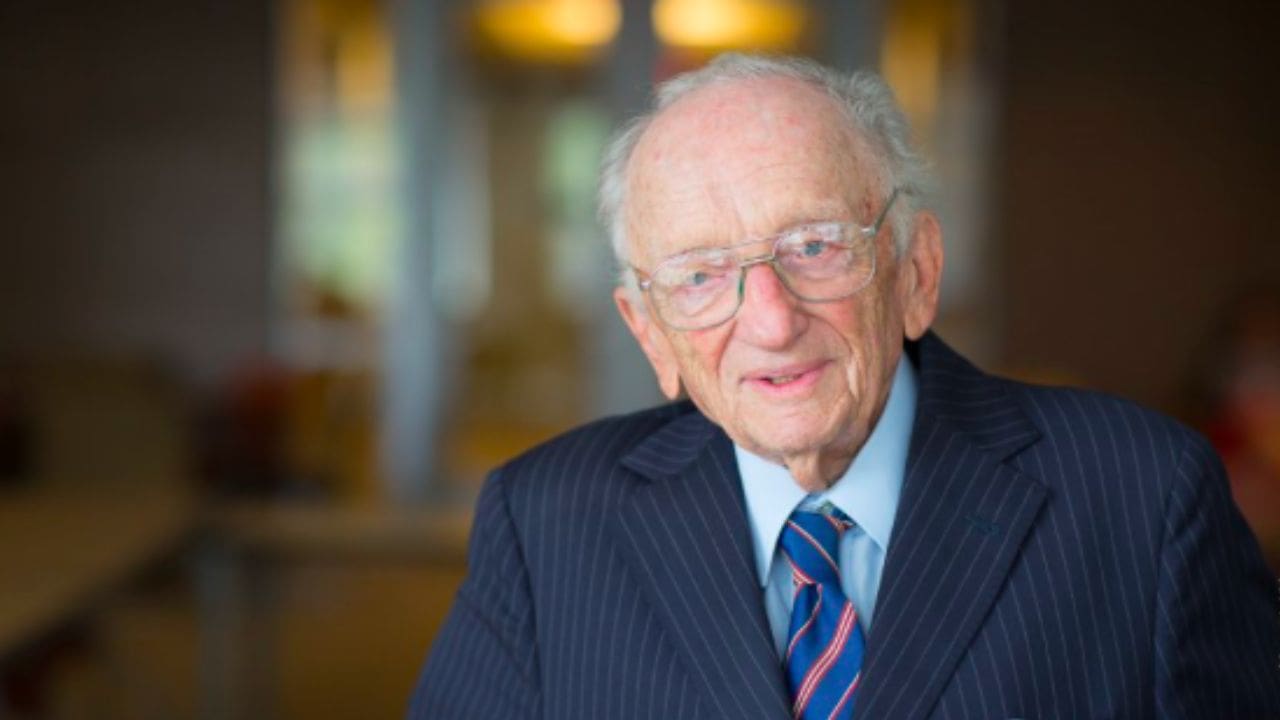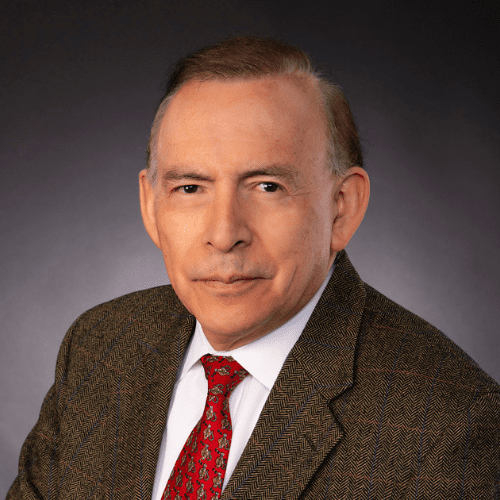Benjamin Ferencz died on April 7, 2023 at the age of 103. He lived a very rewarding and meaningful life. I had the privilege of meeting him several times, most recently when he received a lifetime achievement award from the Law School at Washington University in St. Louis. He also received a lifetime achievement award from Citizens for Global Solutions. He had served as a member of its National Advisory Board. For many years at their events, the St. Louis chapter of CGS handed out many free copies of Ben’s popular book Planethood. This primer for how to outlaw war outlines eight steps for lasting peace and prosperity.
I had the privilege of introducing the documentary film “Prosecuting Evil” at a recent Jewish Film Festival in St. Louis. This film begins with a quote from Aristotle: “At his best, man is the noblest of all animals; separated from law and justice he is the worst.” During his long life, Ben Ferencz saw the best and the worst of humanity. Because of his experiences in the Second World War, Ben explained how “war can make murderers out of otherwise decent people.” His lifelong passion was to free the world of the war system through legal systems. Ben’s mantra was “Law, not war.”
Ben was born in Eastern Europe of Jewish parents. When he was a baby, his family came to the United States and lived in New York City. After learning English as a replacement of his native Yiddish, Ben eventually graduated from City College and then went to Harvard Law School where he studied war crimes. He then joined the U.S. Army during the Second World War. As a war crimes investigator, he visited many concentration camps after they were liberated by the Allies.
At age 27, Ben became the chief prosecutor of one of the subsequent trials at Nuremberg. He prosecuted Nazi leaders like Otto Ohlendorf who were involved in the Einsatzgruppen, the mobile killing squads who rounded up about one million Jews and shot them. The Nazis then sought a cheaper and quicker way to murder millions of innocent people. They created death camps where many Jews were asphyxiated by poison gas. Ben referred to the Nuremberg Trials as the “biggest murder trial in history.”
After prosecuting Nazi leaders, Ben was able to force the German government to take care of Jewish cemeteries in perpetuity. He then came back to the United States and worked as a human rights lawyer. As a professor of international law at Pace University, Ben wrote many books and articles on international criminal law.
Because of his experience as a prosecutor at Nuremberg, Ben was convinced that the world needed a permanent International Criminal Court. He was a champion for the creation of the ICC which came into existence with the Treaty of Rome in 1998 and the ratification by enough national governments in 2002. The ICC can prosecute individuals involved in war crimes, crimes against humanity, genocide, and aggression when national courts are unable or unwilling to prosecute them. Ben saw this as an important deterrent; it sends the message that people, especially national leaders, cannot get away with mass murder. The problem is that only about two-thirds of the national governments are parties to the workings of the ICC. The United States, Russia, and China are not parties because their vetoes in the UN Security Council do not apply in the ICC. It was an op-ed in the New York Times which Ben wrote with Robert McNamara that convinced President Clinton to sign the Treaty of Rome in 2000. But President George W. Bush notified the United Nations in 2002 that the United States would not pursue ratification of this treaty.
Ben believed that universal support for the ICC would be an important step in creating “a more humane and peaceful world order.” For this man who prosecuted Nazi leaders and became one of the world’s foremost experts in international criminal law, law is better than war.



























